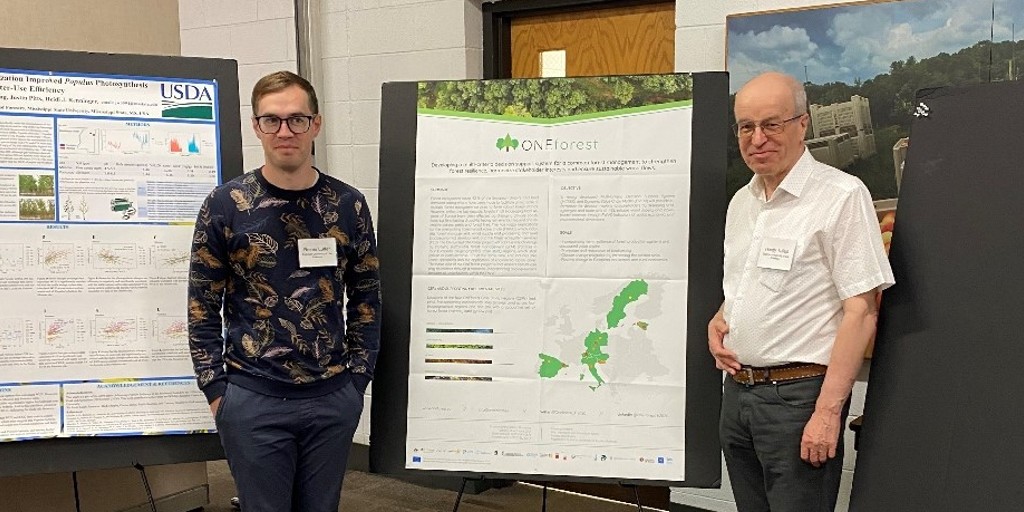
ONEforest presented in North Carolina
The ONEforest project landed in USA this May. Why? To be presented at the 2022 Short Rotation Woody Crops International Conference in Asheville (North Carolina, USA) by EULS.
Between 2-4 May, Marju Kaivapalu and Reeno Sopp, Ph.D. students from the Estonian University of Life Sciences (EULS), presented respectively “The uptake of heavy metals and their allocation of hybrid aspen plantations on former agricultural lands and a reclaimed Aidu oil shale quarry“ and “Twenty years of short -rotation forestry with silver birch and hybrid aspen in hemiboreal Europe: productivity and soil nutritional status“ as part of the works on Silviculture and management of Boreal Forest.
The first presentation showed that in North-East Estonia various elements (mainly As, Hg, Pb, Cd, Fe) are higher, especially near Kunda (polluted former agricultural land), where cement production has taken place since 1871. In the quarry soil C:N ratio is 65 and this indicates that stands are very poor and N uptake is limited.The concentration of heavy metals in wood and bark are mostly higher in the quarry. The content of heavy metals in the stand age 1-10 years is usually higher than in the stand age 11-20 years. There is a strong relationship between soil and biomass Zn. Hybrid aspen is suitable for phytoremediation application in the soils of contaminated by heavy metals in post-industrial landscapes.
While the second presentation disclosed that hybrid aspen and silver birch has great potential for growing on former agricultural lands. Production is bigger on former agricultural lands then in natural forests.
The 2022 Short Rotation Woody Crops International Conference will bring leading SRWC organizations to enhance information exchange and provide a platform for developing future collaboration around short rotation woody crops (SRWCs) production systems. The event is intended for researchers, forestry practitioners, decision-makers, and students who are interested in the state of the science and practice of growing and using fast-grown trees for forest products, bioenergy, and site remediation.
Historically, international efforts for the development of short-rotation woody crops (SRWCs) focused on the production of biomass for bioenergy, biofuels, and bioproducts, while research and deployment over the past decade has expanded to include broader objectives of achieving multiple ecosystem services. In particular, silvicultural prescriptions developed for SRWCs have been refined to include woody crop production systems for environmental benefits such as carbon sequestration, water quality and quantity, and soil health. In addition, current systems have been expanded beyond traditional fiber production to more valuable wood products and to other environmental technologies that incorporate SRWCs as vital components for phytotechnologies (e.g., phytoremediation), urban afforestation, ecological restoration, and mine reclamation.

